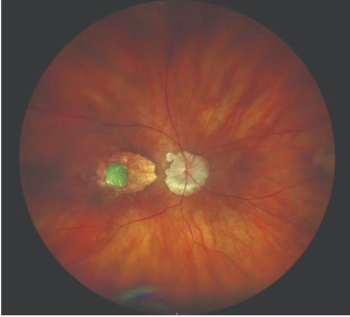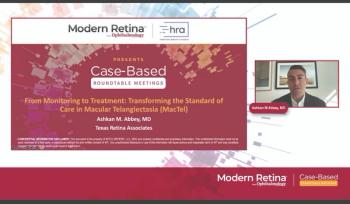
Stress resilience-enhancing drugs may provide new therapeutics to treat AMD, DR, and RP
The study results show the potential of SREDs to treat progressive, chronic retina conditions including age-related macular degeneration (AMD), diabetic retinopathy (DR), and retinitis pigmentosa (RP).
Researchers have discovered small-molecule drugs with potential clinical utility in the treatment of age-related macular degeneration (AMD), diabetic retinopathy (DR), and retinitis pigmentosa (RP). The University of California, Irvine-led study, titled, “Stress resilience-enhancing drugs preserve tissue structure and function in degenerating retina via phosphodiesterase inhibition,” was published in the Proceedings of the National Academy of Sciences.
“In this study, we introduce a new class of therapeutics called ‘Stress Resilience-Enhancing Drugs’ (SREDs) for the treatment of neurodegenerative conditions, specifically the world’s leading causes of blindness in age-related and inherited retinal diseases,” said Krzysztof Palczewski, PhD, Donald Bren Professor of Ophthalmology at the UCI School of Medicine and corresponding author on the study. “Through selective, pharmacological inhibition of cyclic nucleotide phosphodiesterases, our prototypical SREDs slowed or halted the development and progression of retinopathies in a number of genetic and environmental animal models.”
The researchers in this study innovated a systems pharmacology platform that leverages state-of-the-art disease modeling and characterization to identify novel, mechanism-based therapies that mitigate disease at the root cause. The SRED therapeutic intervention enhanced resilience to acute and chronic forms of stress in the degenerating retina, thus preserving tissue structure and function across multiple models of age-related or inherited retinal disease. Taken together, these findings exemplify a systems pharmacology approach to drug discovery and development, revealing a new class of therapeutics with potential clinical utility in the treatment or prevention of the most common causes of blindness.
“SREDs represent a promising strategy for patients and clinicians to combat disease in earlier stages with superior efficacy over the current standard of care, augmenting the arsenal of ophthalmic medications presently available in anti-angiogenics, corticosteroids, and nonsteroidal anti-inflammatory drugs (NSAIDs),” said lead author Jennings Luu, MD, PhD Doctoral Fellow of Pharmacology in the Medical Scientist Training Program at Case Western Reserve University and Visiting Scholar at University of California, Irvine. “Ultimately, it is our expectation that SREDs will someday serve as a standard of care for human aging, effectively providing patients the means to diminish suffering from debilitating ailments for which there currently exist no viable therapeutic options, thereby extending human lifespan and health span irrespective of disease etiology.”
This study was funded in part by the National Institutes of Health, the US Department of Veterans Affairs, the International Centre for Translational Eye Research project, and Research to Prevent Blindness.
Predicated in part on the discoveries highlighted in this publication, Luu and Palczewski have co-founded a seed-stage startup pharmaceutical company, Hyperion Therapeutics, Inc., which aims to commercialize the intellectual property associated with their recent discoveries and introduce to the market new therapeutic agents for the treatment or prevention of AMD, DR, RP, and other progressive, incurable blinding diseases. The Company was recently awarded first place in the Morganthaler-Pavey Startup Competition hosted by the Veale Institute for Entrepreneurship and has additionally partnered with UCI Beall Applied Innovation in the Wayfinder Incubator Program; through this strategic alliance, Luu and Palczewski are serving as co-investigators on a newly awarded Proof of Product grant, which will support the advancement of their pipeline therapies toward clinical trials and eventual commercialization.
Newsletter
Keep your retina practice on the forefront—subscribe for expert analysis and emerging trends in retinal disease management.












































